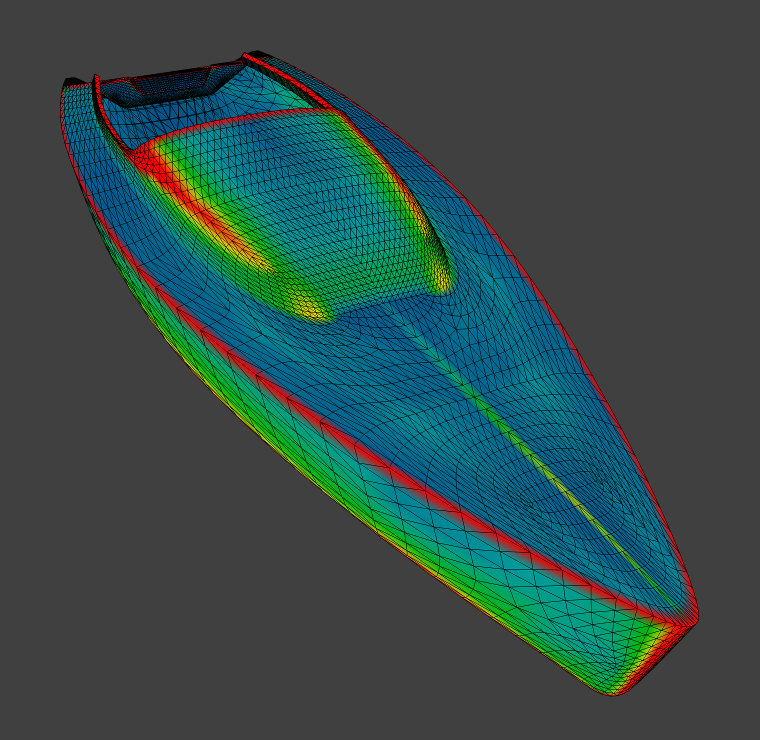Mesh Analysis
Reference
- Mode:
Edit Mode
- 패널:
Mesh analysis is useful for displaying attributes of the mesh, that may impact certain use cases.
The mesh analysis works in Edit Mode and Solid Viewport shading. It shows areas with a high value in red, and areas with a low value in blue. Geometry outside the range is displayed gray.
Currently the different modes target 3D printing as their primary use.
Overhang
Extrusion 3D printers have a physical limit to the overhang that can be printed, this display mode shows the overhang with angle range and axis selection.
- Minimum/Maximum
Minimum/Maximum angle to display.
- Axis
Axis and direction to use as the bases to calculate the angle to visualize.
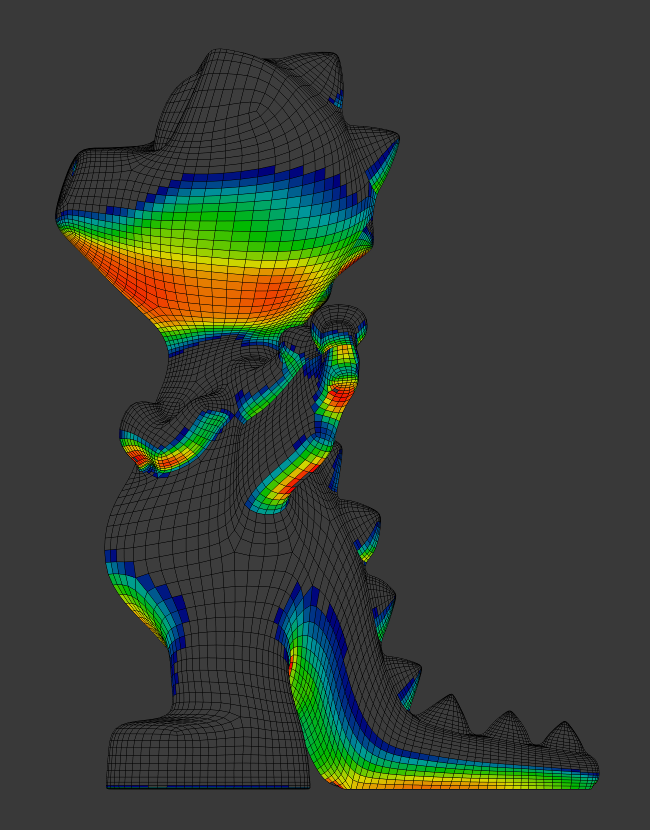
Overhang.
Thickness
Printers have a limited wall-thickness where very thin areas cannot be printed, this test uses ray casting and a distance range to the thickness of the geometry.
- Minimum/Maximum
Minimum/Maximum thickness to display.
- Samples
Number of samples to use to calculate the thickness.
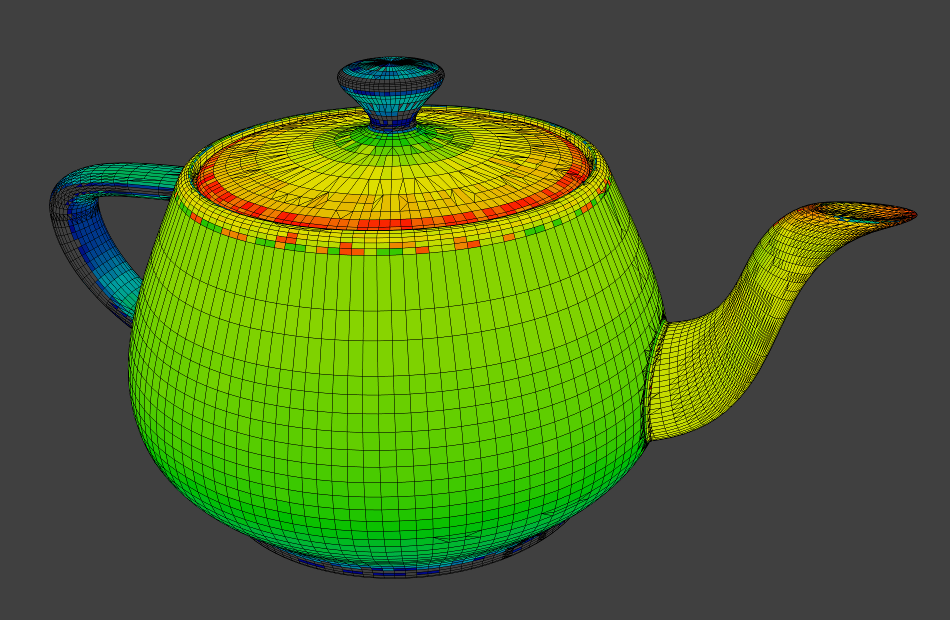
Thickness.
Intersections
Another common cause of problems for printing are intersections between surfaces, where the inside/outside of a model cannot be reliably detected.
Unlike other display modes, intersections have no variance and are either on or off.
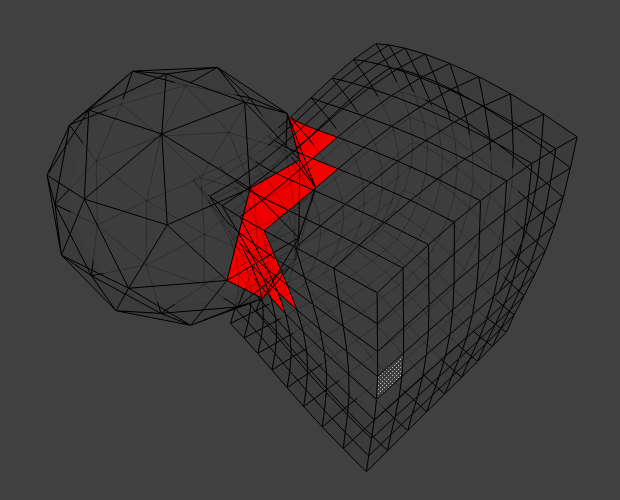
Intersecting faces.
Distortion
Distorted geometry can cause problems since the triangulation of a distorted n-gon is undefined.
Distortion is measured by faces which are not flat, with parts of the face pointing in different directions.
- Minimum/Maximum
Minimum/Maximum distortion to display.
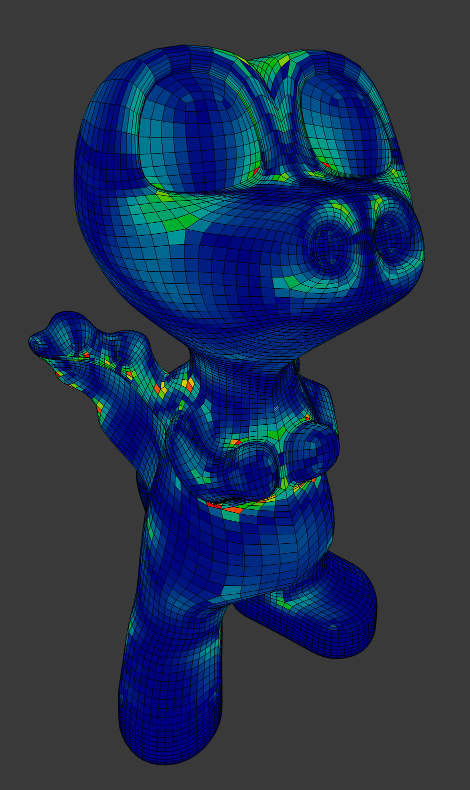
Distorted Faces.
Known Limitations
There are some known limitations with mesh analysis:
Currently only displayed with Deform Modifiers.
For high-poly meshes the performance is low while editing.
